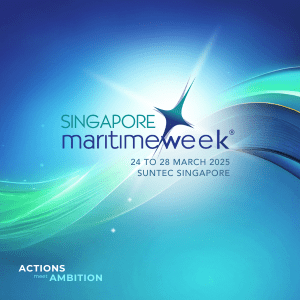Indian cargo lines are at a disadvantage when compared to their counterparts in other countries with regards to transportation of goods to India from foreign countries in case of CIF purchase by Indian importers
GST as envisaged is supposed to simplify earlier complex tax structures, to bring uniformity of taxes and to eliminate the cascading effect of indirect taxes. In next few weeks, GST is going to complete 2 years from its introduction. Through this article, an attempt is being made by the authors to highlight one of the situation where-in the GST provisions result into discriminatory treatment for Indian shipping industry which warrants timely resolution.
CIF import of goods in India
The issue pertains to shipping of goods (containerised, liquid and bulk cargo) by India based cargo lines for import on CIF basis from outside India. The service of transportation of goods in a vessel attracts GST @ 5 per cent with input tax credit (ITC) of only input services. However, if the service qualifies as a ‘zero rated supply’ as defined under IGST Act, then the said service would not bear this GST incidence of 5 per cent and also the incidence of GST suffered on input services can be claimed as refund. Export of services is considered as a zero-rated supply under GST.
For a service to qualify as export of service, the place of supply (POS) should also be outside India in terms of the IGST Act. The POS in a case where the foreign exporter engages an Indian cargo liner for transport of goods to India, shall be India, being the destination of goods in terms of Section 13(9) of IGST Act. Consequently, the service of Indian cargo liner will not qualify as export of service. Therefore, if foreign exporter intends to engage Indian cargo liner for export of cargo from his country to India, then Indian cargo liner is liable to pay GST on its service. The said GST charged from the foreign exporter would not be available as ITC to anyone in India. Such GST will become a cost to the foreign exporter. Such cost will impact the CIF price and thus the import price of goods for Indian importers will increase and correspondingly there will be an increase in the import customs duty on such goods. Whereas, on the other hand, if the foreign exporter engages foreign cargo lines, then the GST will be payable by the Indian importer under reverse charge mechanism. However, ITC of the said GST paid under reverse can be availed by such importer and thus it will not be a cost for the importer. Customs duty on the import of goods in such case will also be comparatively lesser as the assessable value will not include GST on freight component.
Therefore, in case of CIF imports the parties would prefer engagement of foreign cargo lines as compared to Indian cargo lines as Indian cargo lines would be becoming un-competitive in view of present provisions of GST.
Further, it may be relevant to look at the tax treatment given by a foreign country with respect to such service of transportation of goods provided by the shipping company. In this respect, the analysis of UK VAT provisions, would show that the transportation services with respect to import and export transactions are completely ‘Zero Rated Supplies’ under Section 30 read with Schedule 8 of UK VAT Act, 1994. It means, the UK cargo lines would not be required to pay VAT (which is GST equivalent tax in UK) on their output supply of service. Further, they are also not to bear the incidence of VAT on their inputs.
It is very clear from the above analysis that Indian cargo lines are at a disadvantageous position when compared to their counterparts in other countries with regards to transportation of goods to India from a place outside India in case of CIF purchase by Indian importers. One of the possible solution could be making such transportation services provided by Indian shipping company to foreign exporters relating to import of goods to India as ‘Zero Rated Supplies’ by amending the POS provisions under Section 13(8) of the IGST Act to the extent that the place where goods are handed over for delivery is considered as POS in such cases.








